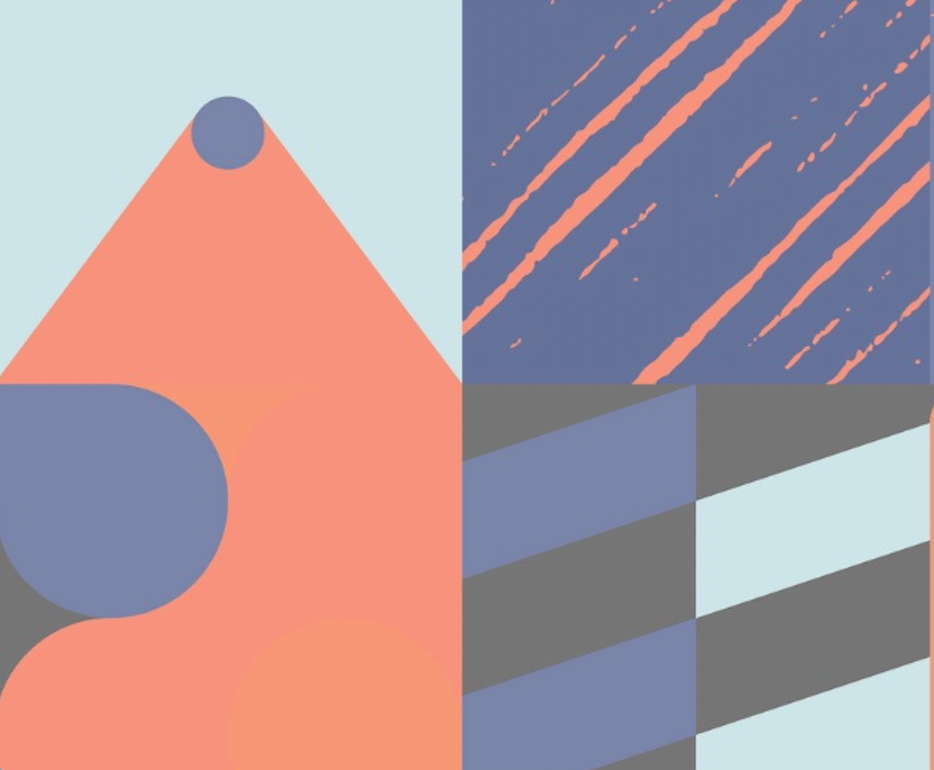
International Conference
Experimental Writing in English (1945-2000): The Anti-Canon
15-16 September 2022 - Brussels, Belgium
Keynote speakers:
Anthony Reed, Associate Professor of English, Vanderbilt University
(2nd keynote speaker TBC)
Call for Papers
This conference aims to focus on experimental writing in English from the second half of the twentieth century which is less well known, has been positioned outside of the literary mainstream or is simply deserving of more attention. It particularly invites proposals on experimental writing by women, queer authors, people of colour and working-class writers.
Much research in recent years has been concerned with nuancing accounts of post-WWII literature which either largely ignored experimental writing in the wake of the war and/or only paid attention to certain canonical postmodernist texts when experimentation was considered. In Breaking the Sequence: Women’s Experimental Fiction (1989), Ellen Friedman and Miriam Fuchs proposed that twentieth-century experimentation by women might be the missing link in the crucial intersection between feminism and modernity as literature and feminism share a “profound quarrel with established, patriarchal forms, but also a sense of identification with what has been muted by these forms” (xii). Since their groundbreaking work and especially in recent years, several anthologies and critical studies have contributed to the ongoing project of rectifying the critical neglect of women’s experimental writing of the second half of the twentieth century. The absence of contributions by writers of colour, queer authors and working-class writers to most conversations about experimental literature is similarly striking and problematic. Thus, Anthony Reed, in Freedom Time: The Poetics and Politics of Black Experimental Writing (2014), has suggested that the “abstractness” of black experimental writing and its resistance to “preemptive understandings of black life” has resulted in the exclusion of experimental writing in standard genealogies of African American literature (7).
This conference then adopts the term “anti-canon” as a provocative invitation to reflect on the ways in which experimental literature in English in general - but writing by certain authors in particular – has regularly been neglected or sidelined in overviews of the literary landscape in the second half of the twentieth century. By adopting the term, we also acknowledge and invite reflections on Ellen Friedman’s suggestion that if canonical novels are strategic constructs to reinforce a society’s values, then works which undermine those values might be thought of as “anticanonical.”[1] More recently, Tyler Bradway has connected the “affective agency” of formal innovation to a specifically queer tradition in literature in Queer Experimental Literature: The Affective Politics of Bad Reading, suggesting this agency reveals “literary form’s capacity to work on and through the bodies of readers, immanently restructuring our felt relations to the aesthetic object” (viii).
Following on from this recent research on the topic, this conference invites reflections on the following questions: To what extent can the notion of anti-canon represent a shared condition for the politics of experimentation? In what ways does it engage with, and perhaps suggest a move beyond, certain categories - such as that of “women’s writing” - as the “other side” of dominant literary form? How might anti-canonical works of literature subvert established ways of looking at the world and at society?
As this Call for Papers makes clear, at the heart of this conference is a flexible understanding of both the terms “anti-canon” as well as “experimental literature,” which we use as an umbrella term to investigate, analyse, and celebrate the more formally innovative end of the wide spectrum of writing in English during the period 1945-2000. In addition to reflections on the above questions, the organisers invite papers on a range of topics and authors, including, but not limited to:
· Experimental prose, poetry, drama, life writing, non-fiction and art writing by women, queer authors, people of colour and working-class writers.
· Experimental writers who have received relatively little sustained critical attention in the past or to date, such as Kathy Acker, Renata Adler, Gloria Anzaldúa, Russell Atkins, Amiri Baraka, Rachel Blau DuPlessis, Christine Brooke-Rose, Brigid Brophy, Theresa Hak Kyung Cha, Maxine Chernoff, Eva Figes, Nikki Giovanni, Renee Gladman, Barbara Guest, Carlene Hatcher Polite, Lyn Hejinian, Fanny Howe, Anna Kavan, Bernadette Mayer, Naomi Mitchison, Haryette Mullen, Eileen Myles, Suniti Namjoshi, Alice Notley, Ann Quin, Oliver Pitcher, Michèle Roberts, Sonia Sanchez, Ntozake Shange, Denis Williams and others.
· The meanings, definitions and employment of “experiment” in the second half of the 20th century.
· Theorisations regarding the anti-canon and what it might mean to read experimental texts in this framework.
· Interconnections and overlaps between eras and movements, including but not limited to relationships between post-war experimental literature, modernism, “late modernism” and/or postmodernism.
· Transnational connections and experimental writing in English which questions (Western) borders, categories and assumptions.
· The categorisation and theorisation of experimental writing in the post-WWII era.
· The question of how experimental writing by women, queer authors, people of colour and working-class writers was/is received.
· The idea of the “death of the novel” and the troubling of different literary categorizations.
· The role and influence of publishing networks in relation to experimental writing.
· The employment and function of “experimental” techniques within “realist” works.
· Formal experimentations in the context of trauma, grief and/or radical vulnerability.
· Multimodal literature.
· Affects at work in experimental literature.
Proposals (ca. 300 words), together with a biographical note, should be sent to Hannah Van Hove (havhove@vub.be) and Tessel Veneboer (Tessel.veneboer@ugent.be) by 2 May 2022. Proposals for panels of three interlinked papers are also welcome, as are experimental and/or creative-critical approaches to papers.
This conference is planned as an on-site event to be held in Brussels.
Organised by Hannah Van Hove (Vrije Universiteit Brussel) and Tessel Veneboer (Universiteit Gent), in association with the research groups CLIC (Centre for Literary and Intermedial Crossings), SEL (Studiecentrum Experimentele Literatuur) and 20cc (Twentieth-Century Crossroads).